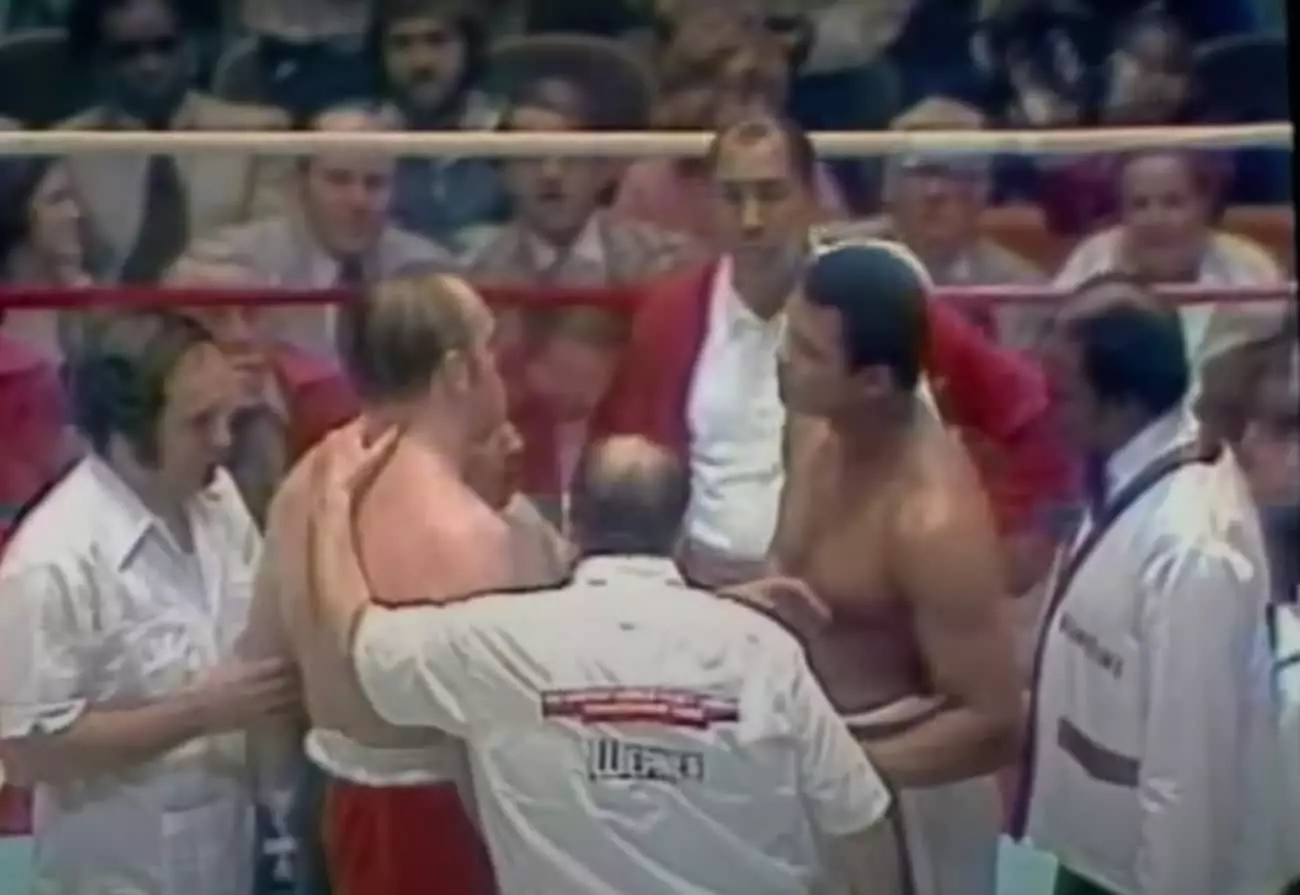In the annals of boxing history, few matchups are as storied and steeped in irony as the fight between Muhammad Ali and Chuck Wepner. In March 1975, this collision of contrasting figures materialized, pitting the revered heavyweight champion, known as “The Greatest,” against a notoriously bruised yet undeterred challenger. Wepner, often in the shadow of more illustrious fighters, entered the ring not only to seize a title but to confront his fate against one of the most powerful icons in sports history.
The Unexpected Challenger
By 1975, Muhammad Ali had solidified his status in the heavyweight division following a riveting comeback to reclaim the title from George Foreman. Meanwhile, Chuck Wepner, a fighter with a less-than-stellar record of 30 wins against 9 losses, was viewed primarily as a stepping stone—a mere warm-up bout for the champion. Dubbed “The Bayonne Bleeder” due to his propensity for getting cut during fights, Wepner wasn’t just a fighter; he was a human embodiment of resilience. The idea of him facing Ali is reminiscent of David versus Goliath, yet Wepner’s enterprising spirit made him more relatable than a mere statistic.
The Fight: A Testament to Tenacity
The match was set to unfold in Ohio, yet the fanfare surrounding it was nowhere near the excitement generated by Ali’s previous fights. As Ali mentally prepared himself, there were whispers of Wepner’s past bouts filled with excessive damage and his less-than-polished skills. Little did the world know that Wepner had something significant in his corner: motivation. After receiving a rare opportunity for a complete training camp, Wepner arrived at the fight as an embodiment of preparedness.
From the outset, the dynamics of the match played into the narratives surrounding both fighters. Ali, known for his graceful footwork and strategic punches, faced a fighter who employed a different set of tactics. Wepner’s unorthodox use of rabbit punches stoked the ire of Ali, as well as referee Tony Perez, creating a palpable tension that electrified the atmosphere.
The Knockdown: A Moment of Glory
Then came the unexpected. In a twist that would stun audiences, Wepner managed to land a punch that brought Ali to the canvas—a moment that transcended the fight itself. This knockdown was not just a statistical anomaly; it was a vivid reminder of the unpredictability of sports. Ali’s reaction was telling; the champion was both embarrassed and enraged. Yet, instead of crumbling, he showcased his innate ability to adapt, returning to dismantling Wepner with an array of punches.
As the fight progressed, it became clear that while Wepner was overmatched, he was far from outclassed. Fighting back against Ali’s onslaught, Wepner emerged as a figure of grit and determination, enduring blows while maintaining his own offensive strategy. With every round that passed, he reinforced the belief that perseverance can sometimes eclipse skill.
Cinematic Legacy: From the Ring to the Screen
Post-fight, while Ali retained his title and reputation as the king of boxing, something magical happened outside the ring. An inspired Sylvester Stallone, who had watched the entire affair unfold before him, hastily penned the script for what would become the film “Rocky.” This cinematic masterpiece immortalized the spirit of the underdog, drawing on Wepner’s tenacity to inject realism into the ideals of success and triumph against overwhelming odds. The screenplay emerged not just as a story but as a tribute to lives transformed by sheer will and determination.
The Legacy of a Survivor
Fast forward to today, and Wepner stands as a testament to resilience—a living piece of history in his own right. As he navigates through his 80s, “The Real Life Rocky” continues to embody the spirit of survival against adversity. His journey reflects more than sporting greatness; it serves as a narrative of hope for everyone who has faced setbacks yet continues to persevere.
The fame associated with his match against Ali wasn’t merely a fleeting moment in time; it crystallized an evergreen message. That sometimes, being the underdog can carry an extraordinary weight, igniting inspiration in unexpected corners. Chuck Wepner didn’t just fight for a title—he fought for every person who has ever dared to dream amid dire circumstances, etching his mark in a sport that values not just victory, but the spirit of the fight itself.

